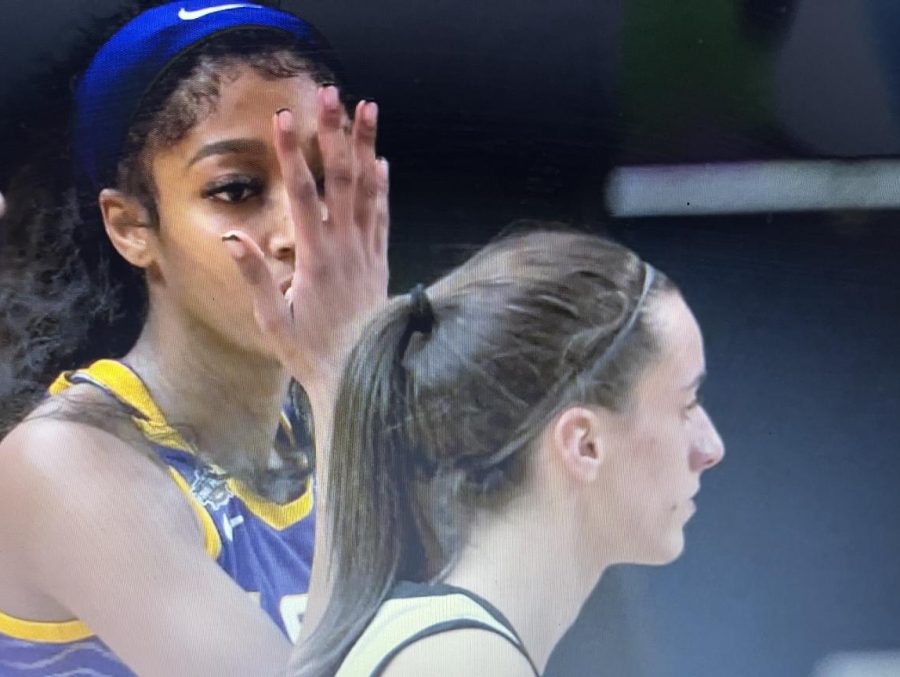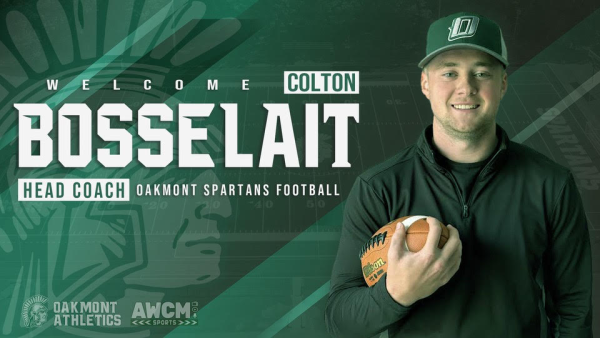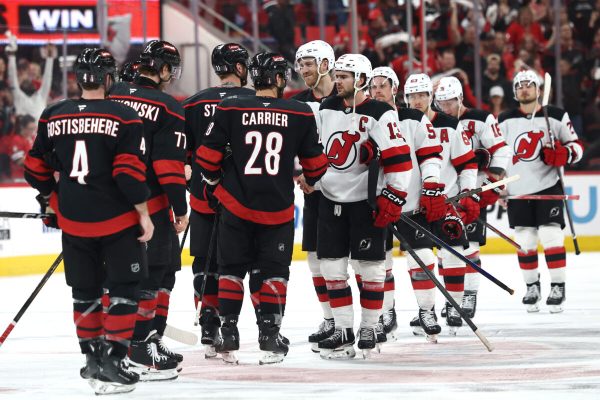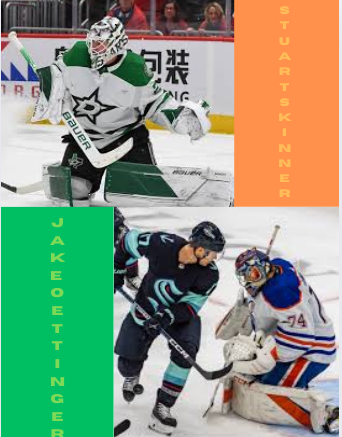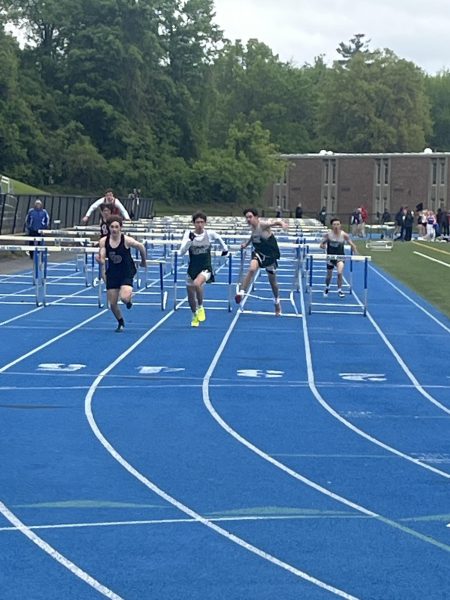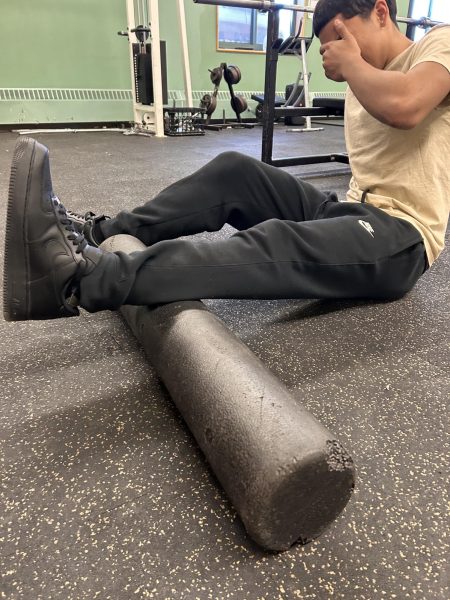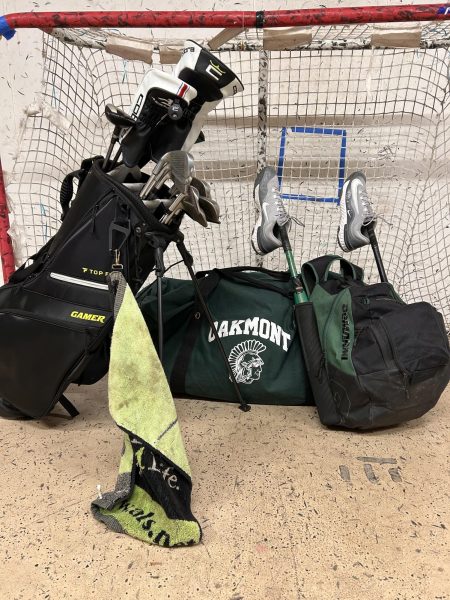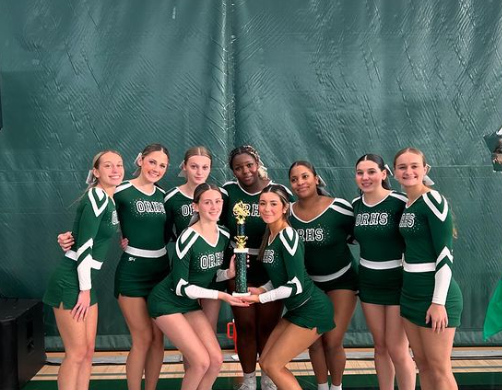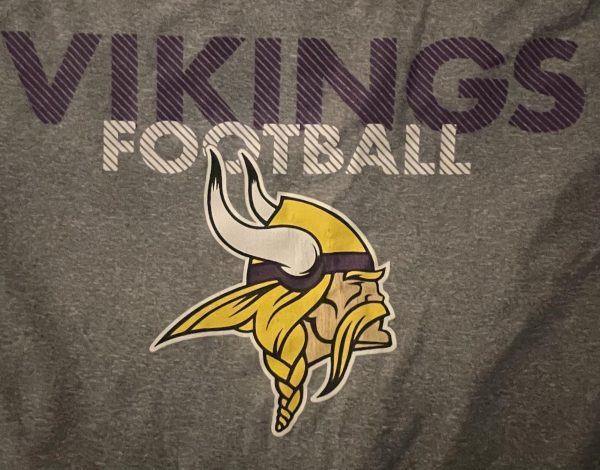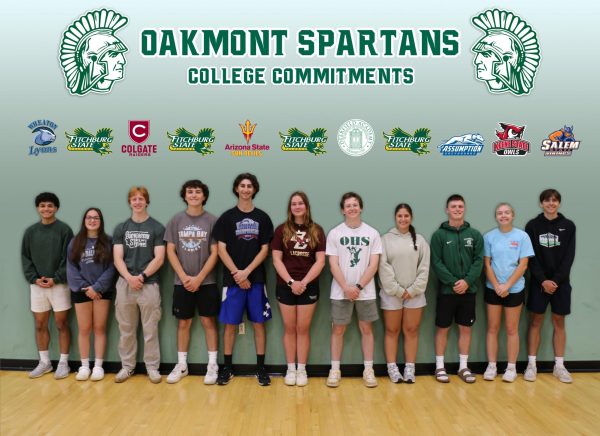‘You can’t see me!” Trash talk in the Women’s NCAA Final Four
The GOOD: Women’s Sports NCAA Hoop Final Four, Caitlin Clark Grab Spotlight
The BAD: Trash Talking and Sportsmanship Grabs Lowlight
By Kyra Pappas and Addi Roy
You’re on the court, under the lights, at the last home game of the season. The game is intense, you’re playing your rival school and it’s tied. Stakes are high as only one team will move onto playoffs. The best girl on the other team is trash-talking you right before you get the game-winning possession. As you make your way down the court you hear screaming stands, angry coaches, teammates yelling at each other to stop you from getting to the basket. How would you handle this?
Trash-talking has always been a part of not only athletics but life in general, of course, it is intensified during athletic competition. It is a way of showing the competitive nature of the sport and it is not always done with ill intent. Patrick Cohn, author of How to cope with trash talkers in sports says, ¨The mind games are endless in sports. The reason that athletes trash talk is because, many times, it works. Some athletes get so caught up in the antics of their opponents that they find it difficult to focus during a competition or game.¨
Oakmont’s starting senior guard, Haley Rutherford takes all that silly talk in. “Personally, I don’t take trash-talking from anyone, it honestly just makes me play better and makes me want to show them up but it also tells me that the person is just stooping to a lower level than me and I have to rise above it.”
Oakmont all-star point guard Brandon Hulecki had some thoughts on the subject. “As far as the high school level, there will be some trash talking during the games but as soon as the game ends it’s usually “Good game bro… It’s all love” . It’s all just in the heat of the moment. It never carries over. But, personally, when I trash talk, I hold a grudge against that person. I make it personal. I feel like I need to shut them up every single time I see them from that point on.”
It seems like trash-talking has been part of the game for a long time. Former playoff-tested high school basketball player and coach Tim Caouette shared his understanding and acceptance of trash-talking as trying to gain an edge. Reciting some stories as a former energetic undersized player, he would look to get the edge by talkin’ a bit and giving an extra ‘nudge’ here and there. Often this tactic worked.
But, he spoke of a key playoff game where he tried to get the edge while guarding a Tantasqua 1,800 point scorer, Using a little extra effort and overt body position, Caouette ended up getting 3 fouls within the first two minutes of the game. He had to sit in foul trouble and the Spartans ended up losing. So, he admits, “You have to accept the consequences and sometimes you get burned.”
At what point does the negative talk get in the way of the game, and when is enough enough? Or is it to spark controversy and draw more attention?
This issue was put into the spotlight this past weekend in the NCAA Women’s National Championship game. Iowa superstar Caitlin Clark has had a penchant – like many others – for having some fun with her confident gestures and digs. The tables were turned at in the championship game when LSU’s Angel Reese stalked Clark in the final minutes.
Rachel Trieseman said in her article How a hand gesture dominated a NCAA game and how a double standard was revealed, “LSU forward Angel Reese celebrated the Tigers’ fourth-quarter lead (and imminent victory) by waving one hand in front of her face — a gesture popularized by the wrestler as “You Can’t See Me” — and tapping her ring finger while looking pointedly at Iowa Hawkeyes guard Caitlin Clark.”
By Reese doing this, it brought attention to the game on social media, showing how competitive women’s sports can be.
Jada Sibley, four-year girls varsity basketball guard said, “Considering basketball is such a passionate sport where you are constantly in each others’ faces, trash-talking is bound to happen. Throughout my 4 years playing basketball I have endured a lot of trash talk, whether that be online or yelling in my face.”
The take to social media
This LSU – Iowa situation has taken itself to social media as many trash-talking opportunities do.
Sibley can relate . . . and with a smile. “At the high school level, I believe trash-talking on social media is just ignorant and taking it too far. I’ve experienced social media trash talk and it’s not fun, but it feels even better when you beat them in their house on their senior night. :)”
Coach Caouette also has no patience for the social media clickbait at the high school level in athletics. He commented, “That crosses the line and there is no place for it here.”
Although coaches do not condone this kind of behavior, it does still happen whether they are involved or not.
Rutherford agreed. “Trash talking in person might be expected in sports but over social media is a whole different story. Say you have a big game coming up against a certain team. Imagine seeing that team posting something bad about your team? How would it make you feel? It would probably increase tension between you and the other team and create a split.”
She didn’t have to imagine. “This actually happened this year with a team we played. We lost the first time we played them. They posted pictures basically talking bad about our team, but it was for the better because we beat them the second time we played them on their senior night. Teams that go out of their way to trash someone online are just afraid they’re going to lose and most of the time they do.”
JJ Hicks, a junior Spartan point guard, shared a story where a rival basketball team posted a trash-talking meme days before the game, dissing the Spartans in a post with a photoshopped image that coaches were unaware of. The rival piling on with quite a bit of mouthing during the game, still lost to the Spartans.
Whether you participate in trash-talking on the court or on your feed, at some point enough is enough.

Addi Roy is a member of the class of 2025 at Oakmont. She is a 4 year member of the Oakmonitor, however this year she will be editing! She is a member...

Kyra Pappas is a senior in the class of 2025. This is her third year being a part of The Oakmonitor, as an editor and reporter. She is a girls’ varsity...


